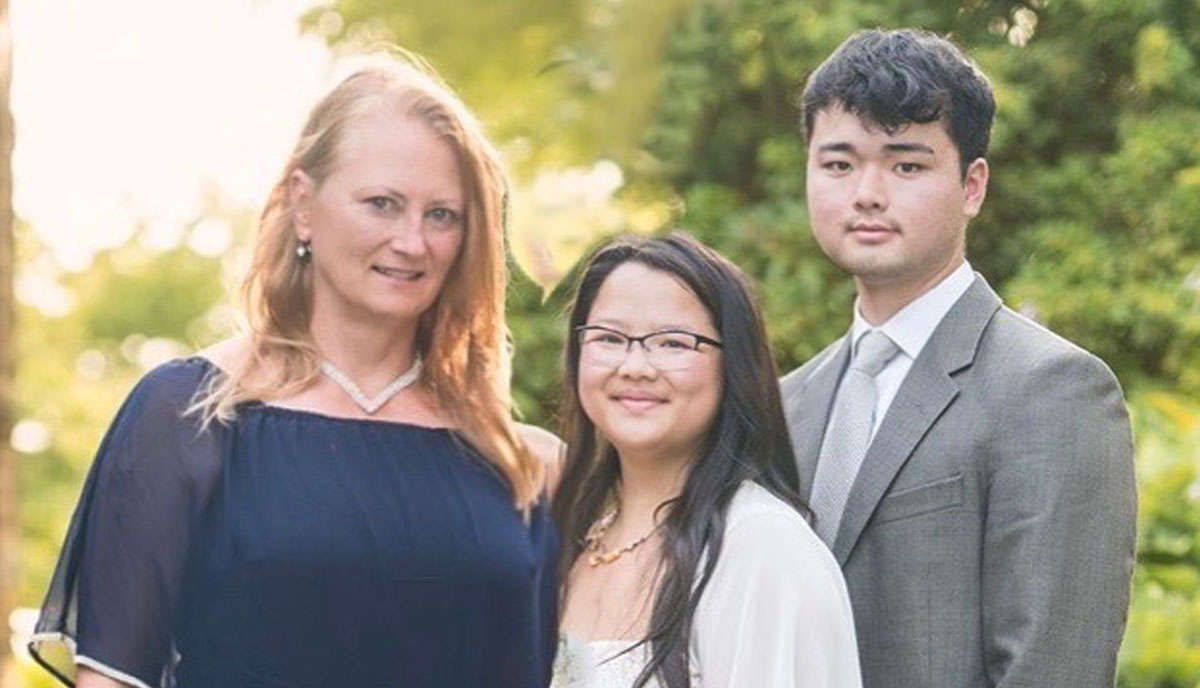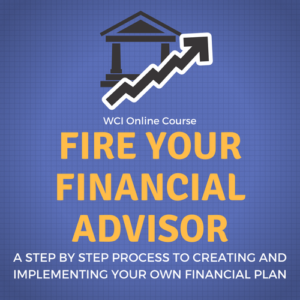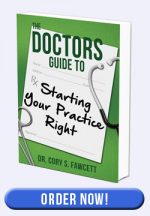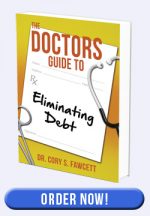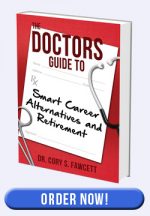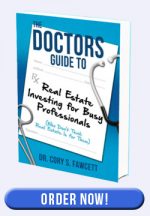(Today’s guest post comes from Suzan Marshall, DO, C-MDI. Dr. Marshall was trained as a general surgeon and later became a medicolegal death investigator. This is the story of her family’s recovery after the sudden loss of her husband, who was also a general surgeon, which turned her into a single mother of two.)
My husband and I were both general surgeons with two young kids when he suddenly died in 2016. The official police report listed his cause of death as “drowning while jogging.” The four of us had been inseparable, like a lot of military families that lived overseas and traveled extensively. We worked hard. Adopting kids as we were cusping 40, underestimating their challenges, we threw ourselves into parenting the way we cared for our patients, with everything. Now he was gone, it was “Time’s up! Put your pencils down.” And I’d only finished half the test. Panic.
Our financial path, like our surgical careers, like our lives as we knew them, seemed destined for drastic and immediate havoc. I didn’t have the mental, emotional, or physical capacity to return to work. At the time of John’s death, I had left surgical practice when John and I switched roles, and he moved into a position with the VA. I did doctor “odd jobs” to be available for the kids. John had paid $22,000 to transfer his military time served to the VA federal system. He had a private disability and life insurance plan and added the rider for accelerated death benefits but not accidental death benefits — because we both agreed he was much more likely to die of cancer than trauma. Unfortunately, it was only after his death that we discovered he was under insured and his life insurance proceeds would not support a young family for the next two decades.
His Chief of Surgery paychecks from the VA stopped immediately, and through a clerical error, so did our Blue Cross/Blue Shield medical insurance plan– for a year, as it turned out. My immediate concern, heeding Suze Orman, was to get out of debt and try to hold on to our 25-acre horse farm we had recently purchased.
Weeks before he died, our vacation house in Sandpoint, Idaho, was listed for sale. It made no sense to keep the property when we now had the farm. We had tried renting it out, but it was a tremendous amount of work with not enough benefit. The house we lived in before the farm was already paid off and rented within days after we moved out, so that earned income for a few years, until that, too, was too much work. I sold that house and was then able to pay off the farm and all those 0% interest purchases on furniture and such. I had learned how to live on 1/5 of our prior income, keep the farm, and become 100% debt-free.
When John and I separated from the military in Korea, the kids were 4 and 7. We transferred our Post-9/11 GI Bill education benefits to them. John had no issue with that strategy, but since he was made to pay for his clothes, transportation, and entertainment from 9th grade through four different high schools, he didn’t see why we had to pay for our kids’ higher education. We knew the adage to pay for your retirement before your kids’ college, but I argued that the cost of a university-education is unaffordable and they’d be saddled with debt they couldn’t get on top of. Was that really necessary when both parents are surgeons? We came to an agreement. Washington has a Guaranteed Education Tuition (GET) fund in which we purchased two years for each of transferable college credits, but at the cost when the kids were in elementary school. Not long after we separated from the military, we were shocked to learn that my VA rating for service-connected injuries was 100%. This was tax-free monthly compensation for me and my dependents. They also received CHAMP-VA health benefits which were a godsend after we lost our insurance upon John’s death. In addition, the kids became eligible for the VA Dependents’ Educational Assistance Program and the Fry Scholarship, offering in-state tuition and a small stipend.
I began to prepare my kids to be financially independent from me by the time they started college. I continued the structure John and I built when they were young, based on Love and Logic Parenting and Suze Orman’s financial principles to live by. Love and Logic puts parents in the consultant role and allows kids to make mistakes when the stakes are low and solve problems themselves.
Liam was our shopper, impulse buying at the Dollar Tree, not just one squirt gun but a dozen. When a classmate hatched a plan to make and sell bracelets, we sped to the fabric and craft store so he could buy the largest bracelet-making kit in existence. I think he made ONE. He soon realized that the small amount of money he had was gone and had to ask himself why he was trying to outfit his friends with the craze-of-the-month.
Liam was impulsive in other aspects. In second grade, his teacher told us, “You know, Liam is the first one done for every test, even if half the answers are wrong.” His determination and competitiveness worked well as a soccer goalkeeper, and now he’s applied that to his pre-med track and his finances. He said to me recently, “You know, I really like explaining investment strategies to the rich kids; they know nothing about IRAs!” (I’m not sure he does either, but let’s go with that.)
We were fortunate to live in Washington State with its Running Start program where 11th and 12th graders can dual-enroll in college and high-school for free. After living through a school shooting and an anti-Asian assault, Liam, who is Korean, never set foot in the high school again. Ironically, the university was far-more equipped to support those with learning difficulties, which came about due to traumatic brain injuries when he suffered five concussions in one year. I didn’t replace his old Subaru when he totaled it (my bad for only buying liability insurance), so he has had to figure out his own transportation.
Liam aged out of Social Security, VA annuity, and VA compensation at 18. I still pay $750/month for medical insurance for the three of us until the kids turn 25. I lost Social Security benefits when Elle turned 16, although I’ve never been able to figure out why.
Initially, Liam resented me for saying he needed to be financially independent from me when he graduated from high school. My answer was that most parents’ income doesn’t drop dramatically when a kid turns 18, and as parents, we have to ask ourselves, at what age do we no longer support our kids financially? How long do they get to live with us? We have to pick a time, or the answer could be forever, and I was determined not to be in a situation like I’d seen with other families.
Liam’s scholarships and stipends are incredibly complicated and confusing, rules obscure and ever-changing, to the point that it’s likely he’ll miss out here and there on available funds. Finishing his junior year in college now, he says he’d raise his kids the same way, to be financially independent from him after high school. I heard a hint of pride when he related telling his friends, “Watch my mom make me pay rent this summer!” And their reply: “No way!” (I did, of course). Liam was smiling as he told me, proud to be an adult now. He anticipated, budgeted for, and paid his summer expenses on his own.
Elle has had different issues. She never felt comfortable in school after the taunts for “bringing COVID from China,” so like her brother, she began Running Start at Eastern Washington University as of 11th grade. A slave to the internet and a kind heart has taken her down the wrong path financially. She wrote her first two English papers about it. Twitch is a site where the clickbait is to buy subscriptions for “friends” you meet on it. “All I had to do was to put in my credit card number. It didn’t seem like I was spending real money,” she wrote. The bank app was on her phone, so it was easy to transfer money from her savings to her checking. Just a bunch of numbers! She didn’t do much better with people she actually met. She thought her friends would appreciate her if she bought them lunch. Soon they let her buy more for them, until one of them taught her how to Venmo them money from my credit card. That practice I discovered immediately and put a stop to. She was so embarrassed and hurt to be manipulated, but now she’s wiser and understands to look out for not just people like that but marketers as well.
Both kids need to get jobs during their school breaks, but financial independence from parents can be achievable with planning and savviness. Managing all three of our finances is time-consuming but is imperative. Our entire lives are different. We don’t go out to eat as much, spend less, and travel less. We still have our horse farm but instead of riding, lessons, and shows, I moved into breeding. I use my skills now building a career as a trauma expert and medicolegal death investigator and authoring a book on death investigation. All small pockets of money to keep me in a position to feel useful and be able to parent alone.
I didn’t choose what happened to us, but I had to make a choice on how to move forward when the old path disappeared. I’m content, and I believe that’s preferable to chasing illusory “happiness.” Surgery doesn’t teach you how to live without it, but it does give you skills to adapt and work with what you have instead of what you want.
(I would like to thank Dr. Marshall for sharing her tragic story. Losing the primary bread winner in a family is a financial crisis and Dr. Marshall’s story should give you hope that recovery is possible. If you would like to contact Dr. Marshall, send me an email and I will connect you or contact her through her business, Plan B Forensics. If you are struggling with a financial crisis I have two resources that may help: The Doctors Guide to Navigating a Financial Crisis and The Doctors Guide to Eliminating Debt. If you wish to read another family’s story of losing their primary bread winner, try My Solo Practitioner Spouse Died Unexpectedly.)

